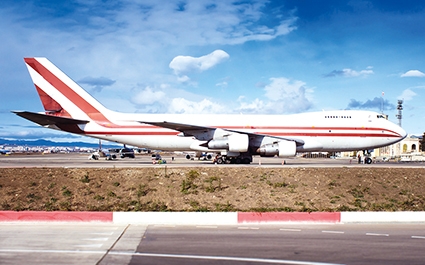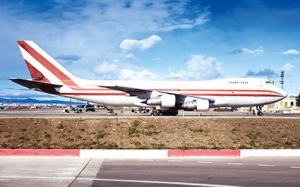Georgian Airline Gets EASA Authorization
After two Georgian airline companies, Georgian Airways and TCA, received authorization from the European Aviation Safety Agency (EASA) in 2016, GEO SKY, Georgia’s cargo airline, has become the third local company to be granted the right to operate in 28 EASA member European Union countries and in four from the European Association for Free Trade - Iceland, Liechtenstein, Norway and Switzerland.
EASA is an agency of the European Union responsible for civil aviation safety. It carries out certification, regulation and standardization, and also performs investigation and monitoring. It collects and analyses safety data, drafts and advises on safety legislation, and coordinates with similar organizations in other parts of the world.
The EU safety authorization for foreign air operators (PART-TCO) confirms the full compliance of the airline operator with International Civil Aviation Organization (ICAO) and EU standards, as well as highlighting the safety and supervision of international safety standards.
The permit is valid until the operator meets the PART-TCO regulation standards or the state issuing of the Airborne Operator's Certificate (Georgia) stops or cancels the relevant certificate.
The Georgian Civil Aviation Agency (GCAA) reports that EASA's Air Safety Security will enable GEO SKY to operate on the European aviation market and will also promote the airline's further development.
The authorization permit has been mandatory for any non-EU country operator wishing to fly into the territory of the European Union since 2016. It means that before a newly developed aircraft model may enter into operation, it must obtain a certificate from the EASA, responsible for the certification of aircraft in the EU and for some European non-EU Countries since 2003.
The certificate testifies that the type of aircraft meets the safety requirements set by the European Union.
Other missions and tasks of the EASA are to:
• Ensure the highest common level of safety protection for EU citizens;
• Ensure the highest common level of environmental protection;
• Single regulatory and certification process among Member States;
• Work with other international aviation organizations and regulators;
• Certify and approve products and organizations, in fields where EASA has exclusive competence;
• Promote the use of European and worldwide standards;
• Cooperate with international actors in order to achieve the highest safety level for EU citizens globally.
By Thea Morrison











